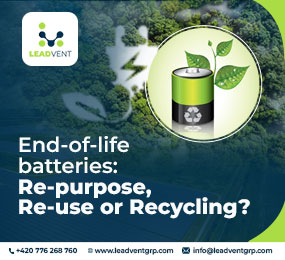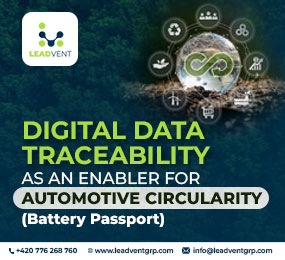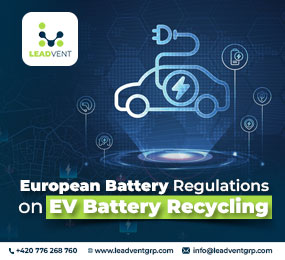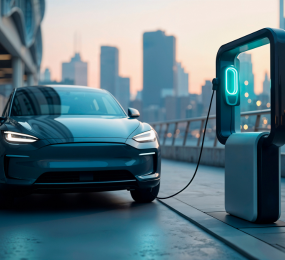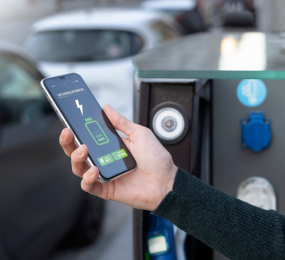The recycling sector has a vital responsibility in propelling the achievement of net-zero endeavours and improving the stewardship of the supply chains from a bearable procurement standpoint. Electric Vehicle Battery Recycling not only helps reduce environmental effects but also guarantees the availability of strategic metals mandated for the mass production of electric vehicles.
Frameworks for Net-Zero Planning
Effective EV recycling plays an important role in reducing the emission of greenhouse gases because raw material extraction produces excessive amounts of greenhouse gases. The research done in Nature also established that battery recycling, together with battery reuse, would lower emissions by anywhere between thirty-six point zero percent and thirty-seven point nine percent, depending on the type of recycling. This significant picture strengthens the implementation of recycling cycles within the net-zero plan.
Why Sustainable Sourcing in Supply Chain Resilience
The EV battery recycling companies help supply chain reliability as its materials, including lithium, cobalt, and nickel, remain continuous. However, as the need for these materials increases with a ramp-up in the adoption of EVs, the dependency of the supply chain on mining introduces vulnerabilities due to conflict and restricted access to resources. Reusing or recycling is more sustainable in terms of supply and demand for the materials that compose these goods and packaging. For instance, one of the biggest mining conglomerates, Glencore, said it began buying copper from old electronics and scrap to supply the growing demand for the energy shift, signalling a transition to recycling as a way of balancing the copper market sustainably.
Examples Explaining the Effect
- BMW Partnership: Li batteries of electric and hybrid vehicles to be recycled by collaboration between BMW and Redwood Materials. Meeting this agreement will enable Sulzer to recover 95-98% of certain battery materials in a new battery cycle. Complete EV recycling leads to improved sustainability and also reduces the impact on the environment.
- Stena Recycling Facility in Sweden: Stena Recycling opened up a new facility dedicated to the development and recycling, as well as analysis of, lithium-ion batteries. This facility is truly one of the first in Europe that scale such operations, helping advance the circular economy and guarantee a sustainable business of battery materials.
2nd Annual Conference on EV Batteries and Recycling
For more in-depth information, the 2nd Annual Electric Vehicle Battery and Recycling Forum is planned for 26th-27th February 2025 at the Radisson Blu Hotel Amsterdam Airport, Amsterdam, Netherlands.
Event Highlights
- Expert Speakers: The forum will see participants like Leon Farrant, CEO & Co-Founder of Green Li-Ion, and Julie-Ann Adma, Secretary General of the European Battery Recycling Association (EBRA). Despite being relatively novel and under development, their knowledge will help elucidate the most recent innovations and difficulties in Electric Vehicle Battery Recycling.
- Networking Possibilities: Visitors would be able to hold conversations with debutant manufacturers of EV batteries at all steps of the value chain of the EV battery, establish vital contacts to work together on greener and more pertinent solutions, and discuss possible aspects to be addressed in this field.
- Summit Focus: These include technology trends in battery recycling, policies related to sustaining battery recycling, and integrating recycled materials within the battery value chain.
Ending Note
The recycling industry is a vital player in today’s global shift toward a sustainable economy, affording the world the chance to become truly carbon-neutral with the supply chains to back it up. This further reduces greenhouse gas emissions and prevents reliance on virgin materials, as over 50 percent of used EV batteries can be recycled. New methods in recycling technologies and partnerships between EV battery recycling companies, regulatory frameworks, and automakers are ensuring dramatic improvements, making the circular economy a possibility.
Such developments can be discussed in anniversaries such as the 2nd Annual Electric Vehicle Battery and Recycling Forum. This platform gathers professionals and other interested parties to share best practices and new approaches to addressing issues related to the recycling of EV batteries. In this regard, tasks highlighted the need to advance global partnership and make as many countries, and citizens contribute to building the future more safely, environment-friendly, and resource-efficient.
FAQs
What is the role of EV battery plays in net-zero goals?
It can do away with the need to obtain new raw materials by reducing greenhouse gas emissions in the extraction and processing stages.
What are the ways of recycling to improve the supply chain?
Recycling plays a vital role in providing a steady stream of sources of critical battery components because recovered material is used in new battery production, reducing the company's exposure to shortages of raw materials and geopolitical considerations.
What issues do EV battery recycling firms encounter?
Some of the current issues that have to be addressed in recycling technologies are the cost of infrastructure development for new technologies, material collection, legislation, and policies on the recycling industries.
What can the stakeholders do to promote sustainable sourcing?
Appropriate collaboration may be observed through the cooperation of the manufacturers and the recyclers, as well as the policies that will give standardisation directives, request further studies on the topics, and reimburse the recycling process.


